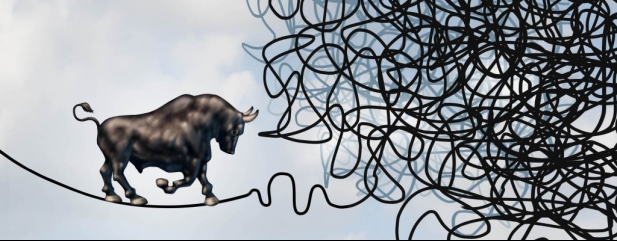Archived article
Please note that tax, investment, pension and ISA rules can change and the information and any views contained in this article may now be inaccurate.
Reasons not to panic as stock markets capitulate

AJ Bell is an easy to use, award-winning platform Open an account
We've accounts to suit every investing need, and free guides and special offers to help you get the most from them.
You can get a few handy suggestions, or even get our experts to do the hard work for you – by picking one of our simple investment ideas.
All the resources you need to choose your shares, from market data to the latest investment news and analysis.
Funds offer an easier way to build your portfolio – we’ve got everything you need to choose the right one.
Starting to save for a pension, approaching retirement, or after an explainer on pension jargon? We can help.
Please note that tax, investment, pension and ISA rules can change and the information and any views contained in this article may now be inaccurate.

Investors’ initial, measured response to Russia’s invasion of Ukraine has gone out of the window.
As commodity prices surge higher the sell-off in global stock markets has intensified. But the last thing you should do is react rashly to this situation.
Essentially people are waking up to the idea that the devastating sanctions imposed on Russia will come at a significant cost to the rest of the world. The disruption to energy, food and metals markets is being reflected in surges higher for these commodities.
Or as George Lagarias, chief economist at global auditor Mazars, adroitly puts it ‘“Cancelling” Russia will be expensive.’
If the West follows through on an import ban for Russian oil, it wouldn’t be a surprise to see a fresh record for oil prices, taking out its previous all-time high of $147 per barrel marked in 2008. As we write the price has touched $139 per barrel just on the suggestion of a ban.
Oil at these levels adds up to a massive tax on growth, given the increased costs it entails for businesses and individuals.
Elsewhere a likely surge in food prices could have implications for geopolitical stability elsewhere in the world, particularly those developing countries where the cost of staying fed is a bigger proportion of household income.
We have had the latest reminder that the FTSE 100 is not representative of the UK economy and is a bit of an outlier relative to other global indices – something we discuss in our main feature this week.
So, while the index is down 8.3% year-to-date, it has been spared the much larger losses seen in other markets thanks to its heavy exposure to the resources sector.
A better indicator of the strain war in Ukraine is putting on the UK economy is the FTSE 250 mid-cap index which is down more than 20% since the start of 2022 and 10% since the eve of Russia’s invasion.
The indiscriminate selling may well have created buying opportunities for those brave enough to take them and the Shares team will watch this space closely.
However, the best approach is to do as little as possible, assuming you still have time on your side to remain invested and ride out the volatility. While it’s hard to see it just now, there will be a recovery for the markets at some point and you don’t want to miss it by selling at a time of panic.
Lagarias adds: ‘Investors with a high tolerance for risk may choose to roll the dice. But for the critical mass of portfolio holders, those for whom risk is a measurable quantity and financial planning is part of the equation, we think that the best course is to avoid taking significant action before the dust settles and trust in the long-term properties of diversified portfolios.’
These articles are provided by Shares magazine which is published by AJ Bell Media, a part of AJ Bell. Shares is not written by AJ Bell.
Shares is provided for your general information and use and is not a personal recommendation to invest. It is not intended to be relied upon by you in making or not making any investment decisions. The investments referred to in these articles will not be suitable for all investors. If in doubt please seek appropriate independent financial advice.
Investors acting on the information in these articles do so at their own risk and AJ Bell Media and its staff do not accept liability for losses suffered by investors as a result of their investment decisions.
The value of your investments can go down as well as up and you may get back less than you originally invested. We don't offer advice, so it's important you understand the risks, if you're unsure please consult a suitably qualified financial adviser. Tax treatment depends on your individual circumstances and rules may change. Past performance is not a guide to future performance and some investments need to be held for the long term.
 magazine
magazine